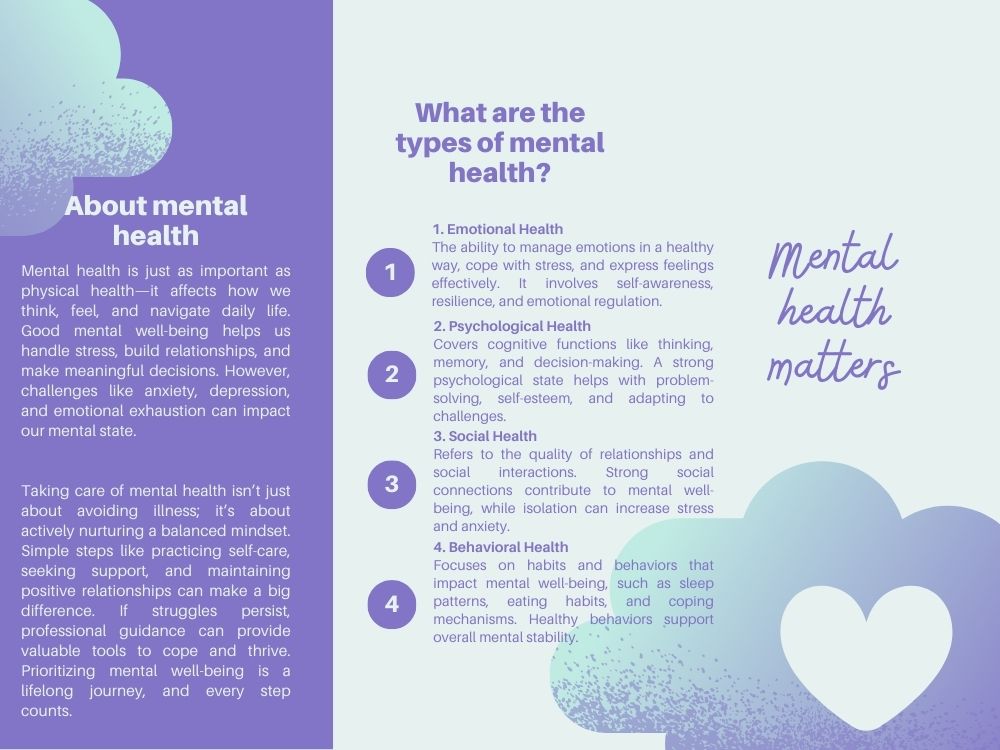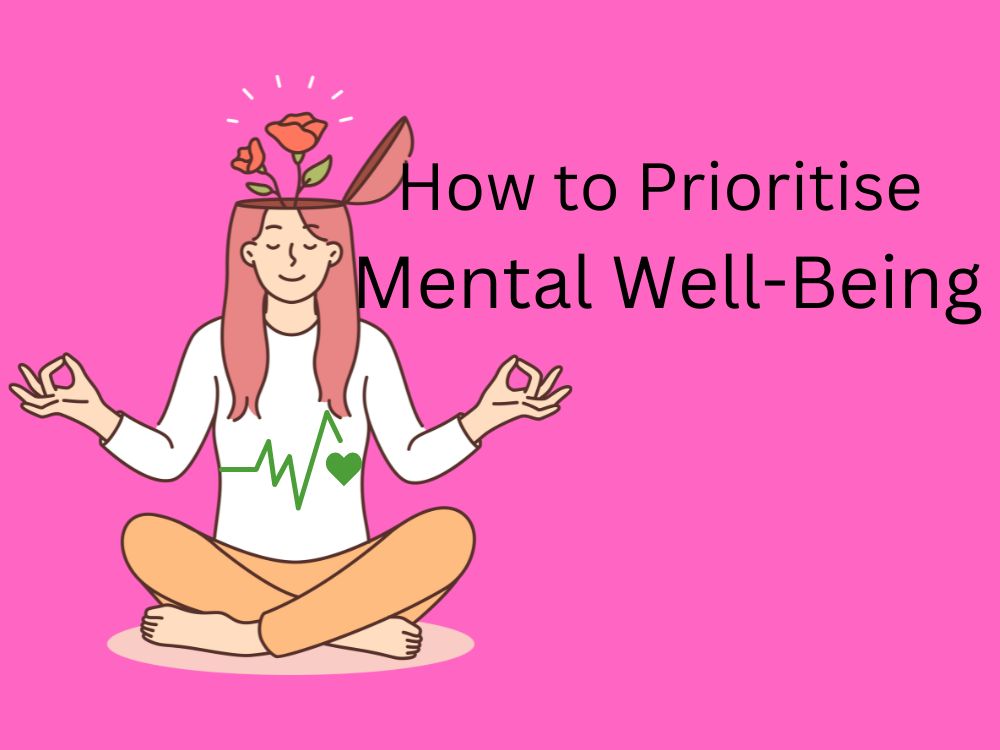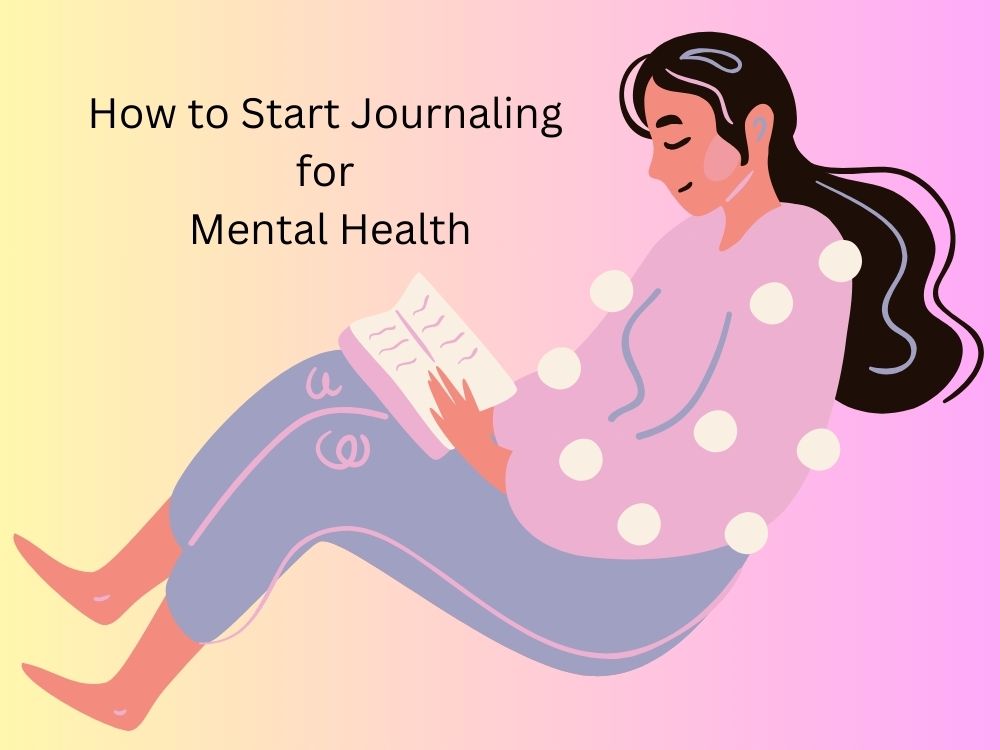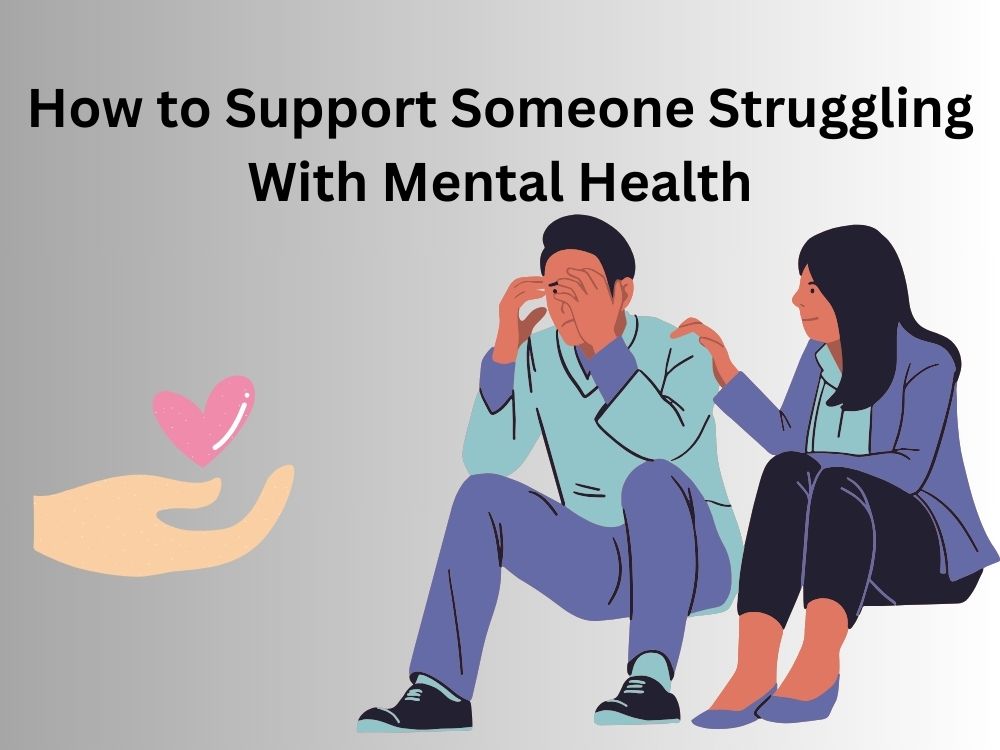Life gets busy. Between work, family, and daily responsibilities, it’s easy to put mental well-being on the back burner. But when stress piles up, it starts affecting everything—your mood, your energy, even your physical health. Figuring out how to prioritize mental well-being isn’t about making drastic changes overnight. It’s about small, consistent efforts that help you feel more balanced and in control. In this article, we’ll talk about practical ways to take care of your mind, share real-life examples, and look at what actually works when it comes to self-care. Because at the end of the day, your mental health matters.
Research underscores the importance of self-care in maintaining mental health. A 2024 article from Marquette University emphasizes that self-care is pivotal for good mental health and provides practical tips for incorporating self-care into daily routines. Additionally, the World Health Organization highlights that self-care interventions can empower individuals to manage their health and well-being, contributing to improved primary healthcare. These insights suggest that integrating structured self-care practices can lead to measurable improvements in mental well-being.

How to Prioritize Mental Well-Being in Everyday Life – 5 Practical Steps to Improve Your Mental Well-Being
Understanding how to prioritize mental well-being is crucial in today’s fast-paced world. Stress, anxiety, and daily pressures can take a toll on your mind, making it essential to focus on habits that nurture emotional balance. Small but effective steps—like setting boundaries, practicing mindfulness, and maintaining a routine—help improve mental well-being. Taking breaks, getting quality sleep, and engaging in activities that bring joy can make a real difference. The key is consistency, not perfection. By making mental health a daily priority, you cultivate resilience, boost focus, and create a life that feels more fulfilling and balanced.
You might wonder, “How can I take care of my mental health?” The answer lies in small but effective steps—like setting boundaries, practicing mindfulness, and maintaining a routine—that help improve mental well-being. Taking breaks, getting quality sleep, and engaging in activities that bring joy can make a real difference. The key is consistency, not perfection. By making mental health a daily priority, you cultivate resilience, boost focus, and create a life that feels more fulfilling and balanced.
1. Cultivate Strong and Supportive Relationships
Meaningful connections are essential for mental well-being. Spending time with loved ones, having open conversations, and being part of a supportive community can reduce stress and improve overall happiness. If you’ve asked yourself, “How can I take care of my mental health?”, start by strengthening relationships that bring comfort and positivity. Catching up with a friend, joining a community, or simply checking in on someone can make a difference. Small efforts create deeper bonds, offering emotional support and a sense of belonging. Prioritizing these connections helps build resilience and keeps the mind healthy.
✅ Do’s:
- Spend quality time with people who uplift and support you.
- Listen actively and show empathy in conversations.
- Reach out regularly, even if it’s just a simple message or call.
- Join a group or community that aligns with your interests.
- Express gratitude and appreciation for those who matter to you.
❌ Don’ts:
- Surround yourself with people who drain your energy or bring negativity.
- Avoid conversations about emotions or bottle up your feelings.
- Ignore loved ones or take relationships for granted.
- Compare your social life to others—meaningful connections matter more than numbers.
- Overcommit to social events at the cost of your personal space and well-being.
2. Prioritize Self-Care and Healthy Habits
Taking care of yourself isn’t just about physical health—it’s the foundation of mental well-being. When life gets overwhelming, small everyday habits can make a big difference. Eating nutritious food, getting enough rest, and making time for things that bring you joy help create balance. But in the rush of daily life, it’s easy to forget this. That’s why learning how to prioritize mental well-being is so important—it starts with simple, mindful choices. Whether it’s setting boundaries, taking breaks, or just breathing deeply for a moment, taking care of your mind should always be a priority.
✅ Do’s:
- Eat nourishing meals and stay hydrated.
- Prioritize quality sleep for better focus and mood.
- Engage in activities that bring you peace.
- Move your body—whether it’s a walk, yoga, or stretching.
- Give yourself permission to take breaks when needed.
❌ Don’ts:
- Skip meals or rely on unhealthy snacks.
- Push yourself to exhaustion without rest.
- Ignore signs of stress or burnout.
- Stay glued to screens without mental breaks.
- Overload your schedule at the cost of self-care.
3. Engage in Meaningful Activities
Doing things that bring you joy and fulfillment is a powerful way to support mental well-being. Whether it’s pursuing a hobby, volunteering, or learning something new, engaging in meaningful activities gives you a sense of purpose. It helps shift focus away from stress and boosts overall happiness. Studies show that people who regularly engage in activities they enjoy experience lower levels of anxiety and depression. The key is to make time for things that genuinely make you feel good—because mental well-being thrives when life feels meaningful.
✅ Do’s:
- Set aside time for hobbies and creative outlets.
- Learn a new skill or revisit an old passion.
- Volunteer or engage in community activities.
- Spend time doing things that bring a sense of accomplishment.
❌ Don’ts:
- Ignore your personal interests due to a busy schedule.
- Force yourself into activities you don’t enjoy.
- Prioritize work over things that make you happy.
- Let stress take away the joy of doing what you love.
4. Manage Stress in Healthy Ways
Stress is a part of life, but how you handle it makes all the difference. Instead of bottling up emotions or ignoring stress, it’s important to find healthy ways to cope. Simple techniques like deep breathing, journaling, or spending time in nature can help clear your mind. Talking to someone you trust also makes a big impact. When you actively manage stress, you create space for mental well-being to thrive, making daily challenges easier to handle.
✅ Do’s:
- Practice deep breathing or meditation to calm your mind.
- Write down your thoughts to process emotions.
- Step outside for fresh air and a change of scenery.
- Talk to a trusted friend or therapist when feeling overwhelmed.
❌ Don’ts:
- Suppress emotions or avoid dealing with stress.
- Rely on unhealthy habits like excessive caffeine or junk food.
- Overload your schedule without allowing downtime.
- Ignore signs of burnout or chronic stress.
5. Practice Mindfulness and Stay Present
Your mind often jumps between the past and future, leading to stress and anxiety. Practicing mindfulness helps you stay in the present moment, reducing overthinking and improving emotional balance. Simple mindfulness exercises—like focusing on your breath, observing your surroundings, or eating without distractions—can make a big difference. When you stay present, you become more aware of your thoughts and feelings without being overwhelmed by them.
✅ Do’s:
- Take a few minutes daily to focus on your breathing.
- Pay attention to your surroundings and engage your senses.
- Practice gratitude by acknowledging small moments of joy.
- Use mindfulness apps or guided meditation if needed.
❌ Don’ts:
- Get stuck in past regrets or future worries.
- Multitask excessively—give full attention to one task at a time.
- Rush through daily activities without being fully present.
- Dismiss mindfulness as something complicated—it can be as simple as slowing down.
Signs It’s Time to Seek Professional Help for Your Mental Well-Being
While self-care and lifestyle changes can improve mental health, there are times when professional help is necessary. If your emotions feel overwhelming, daily life becomes difficult, or stress starts affecting your work and relationships, reaching out to a mental health expert can be a crucial step. Therapy, counseling, or medical support can provide guidance tailored to your needs. Seeking help is not a sign of weakness—it’s a step toward healing and growth.
When to Consider Professional Help:
- Persistent Anxiety or Depression: If feelings of sadness, worry, or hopelessness last for weeks and impact your daily routine.
- Difficulty Coping with Stress: When work pressure, personal issues, or life changes feel unmanageable.
- Disruptions in Sleep and Appetite: Major changes in eating or sleeping patterns can indicate underlying mental health concerns.
- Withdrawal from Social Life: Avoiding friends, family, or activities you once enjoyed.
- Unresolved Trauma or Emotional Pain: If past experiences still affect your thoughts, relationships, or decision-making.
- Thoughts of Self-Harm or Hopelessness: If you ever feel like giving up or harming yourself, seek immediate help.
How to Take the First Step:
- Talk to a trusted friend or family member about your feelings.
- Consult a mental health professional, such as a therapist or psychiatrist.
- Join support groups or online communities for guidance and connection.
- Remember, help is available, and you are not alone.
In today’s fast-paced world, mental well-being often takes a backseat to work, responsibilities, and societal pressures. However, neglecting mental health can lead to burnout, anxiety, and even physical ailments. Understanding how to prioritize mental well-being is not just a luxury—it’s a necessity for a balanced and fulfilling life. Whether you’re juggling personal and professional commitments or dealing with emotional challenges, small yet impactful changes can make a difference. This guide will explore effective self-care strategies, real-life case studies, and expert-backed techniques to help you build emotional resilience. Let’s take a step toward a healthier, happier mind—because your mental health matters.
1. How can I take care of my mental health daily?
Taking care of your mental health starts with small, consistent habits. Prioritize self-care, maintain a balanced routine, stay active, eat nutritious food, and get enough sleep. Limit stress by practicing mindfulness, setting boundaries, and connecting with supportive people. If needed, seek professional help without hesitation.
2. What are some early signs of mental health issues?
Common early signs include persistent sadness, anxiety, mood swings, difficulty concentrating, changes in sleep or appetite, social withdrawal, and a lack of motivation. If these symptoms last for weeks or disrupt daily life, it’s important to seek support.
3. How can I prioritize mental well-being while managing a busy schedule?
Start by setting realistic boundaries, taking short mental breaks, and practicing mindfulness. Even small steps—like deep breathing, journaling, or a quick walk—can improve mental well-being. Schedule self-care as you would any important task.
4. When should I seek professional help for my mental health?
If emotional distress interferes with daily life, relationships, or work, professional support can be beneficial. Seek help if you experience ongoing anxiety, depression, trauma, or thoughts of self-harm. Therapy and counseling provide valuable tools for coping and healing.
5. Can social media impact mental well-being?
Yes, excessive social media use can lead to comparison, anxiety, and stress. Limiting screen time, curating a positive feed, and taking regular digital detoxes can help protect your mental health. Engage with uplifting content and real-life interactions.
6. What are simple ways to reduce stress and improve mental well-being?
Deep breathing exercises, physical activity, journaling, listening to music, and spending time in nature can help. Practicing gratitude, maintaining a positive mindset, and staying socially connected also contribute to mental well-being.
7. How can I support a friend or family member struggling with mental health issues?
Listen without judgment, offer emotional support, and encourage professional help if needed. Avoid dismissing their feelings and instead validate their emotions. Sometimes, just being there for them makes a huge difference.
8. Does diet play a role in mental well-being?
Yes, a healthy diet rich in whole foods, lean proteins, healthy fats, and vitamins supports brain function and emotional stability. Avoid excessive caffeine, sugar, and processed foods, as they can contribute to mood swings and anxiety.
9. Can physical exercise improve mental health?
Absolutely! Regular physical activity releases endorphins, reduces stress hormones, and improves mood. Activities like walking, yoga, or dancing can enhance both mental and physical well-being.
10. What’s the difference between stress and anxiety?
Stress is usually a response to a specific situation, while anxiety is a persistent feeling of worry or fear, even without an immediate cause. If anxiety becomes overwhelming or chronic, seeking professional help is advisable.







